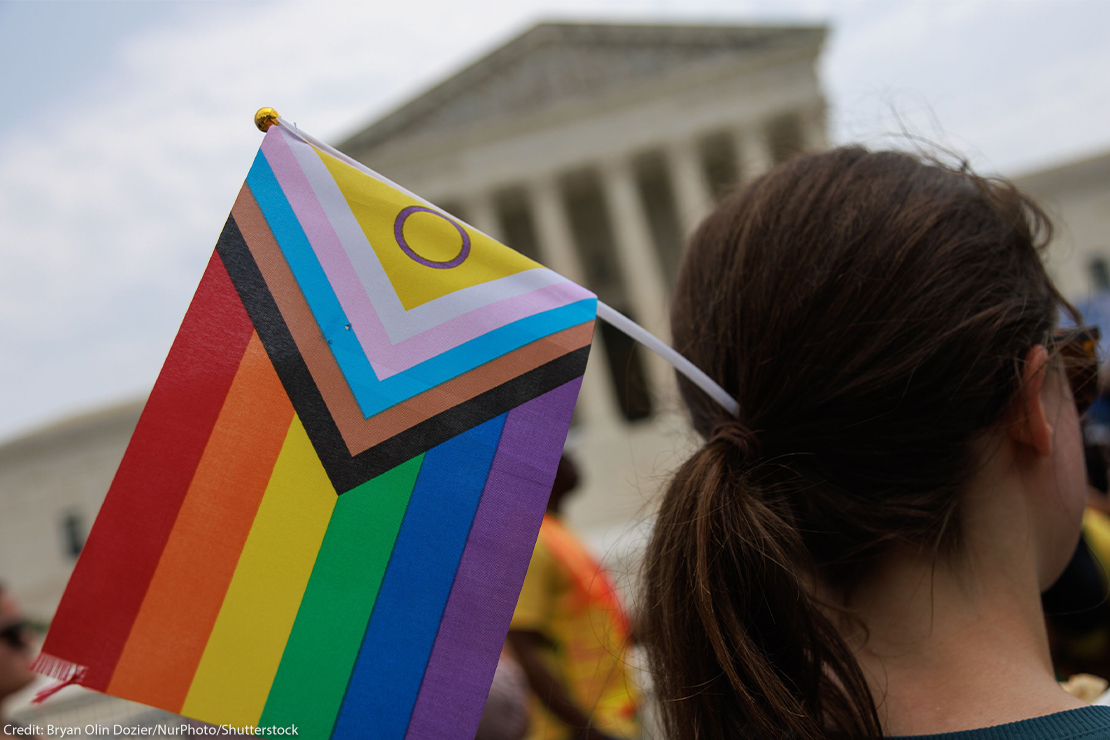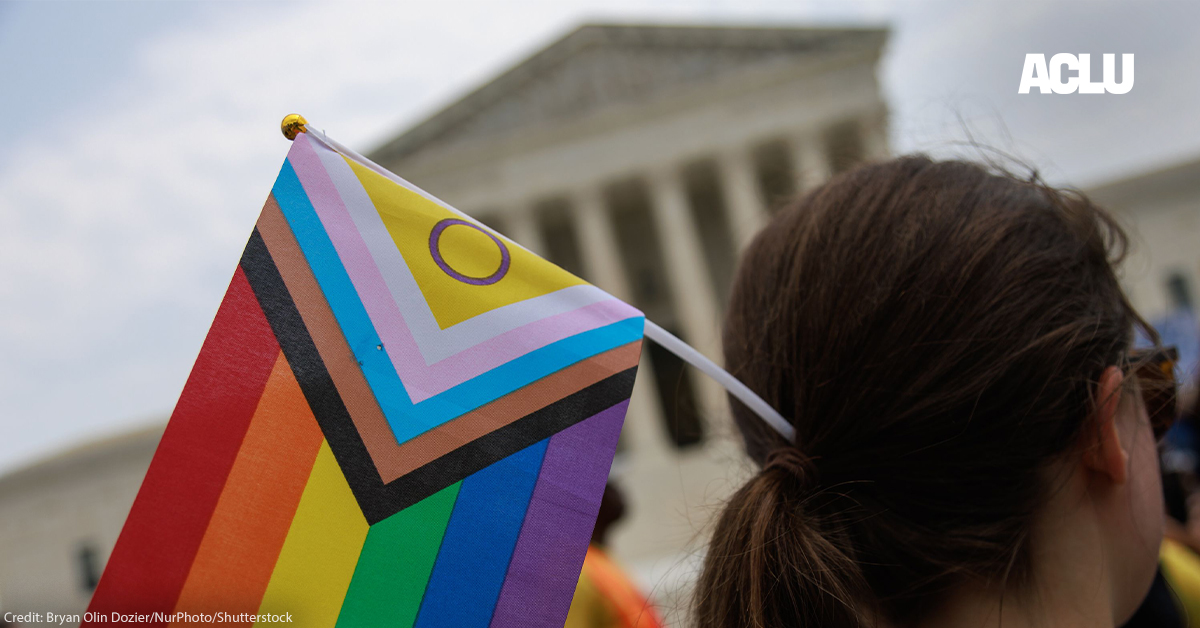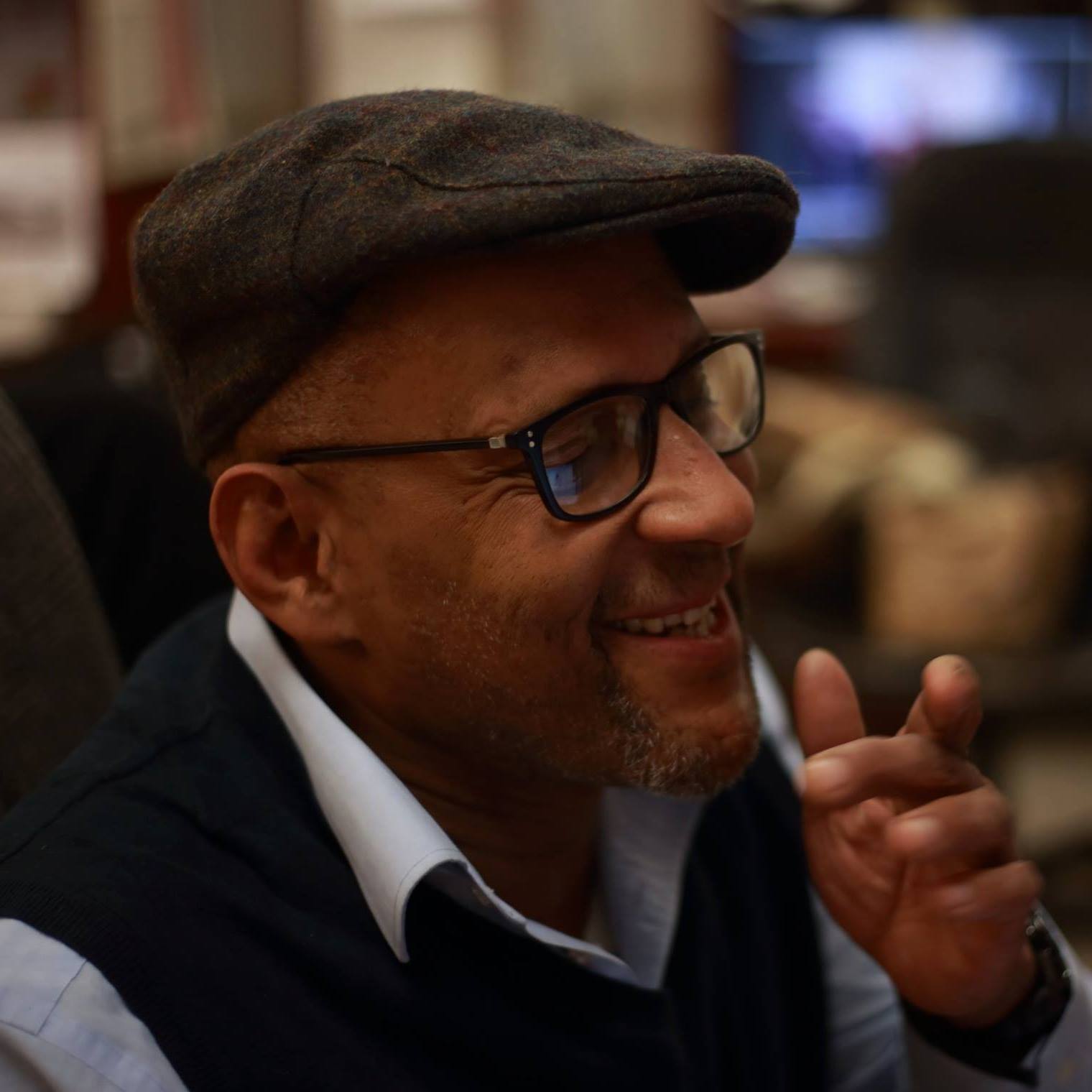Can a bakery that objects to marriage equality refuse to sell a cake to a gay couple for their wedding? This question, or some variant thereof, has occupied courts even before marriages for same-sex couples were legally recognized. In June 2023, in 303 Creative v. Elenis, the Supreme Court addressed this question in a case asking whether a wedding website design business could refuse to design websites for weddings of same-sex couples. The court ruled for the business. But properly understood, the decision does not license discrimination; it merely recognizes that where a business will not provide a particular product or service to anyone, it has the right to refuse it to a gay couple. That exception should not apply to most applications of anti-discrimination laws, which require only equal treatment, and do not require businesses to provide any particular service or product. As I explain in more detail in this Yale Law Journal article and as we argue in this model brief, 303 Creative does not create a First Amendment right to discriminate.
Can a bakery that objects to marriage equality refuse to sell a cake to a gay couple for their wedding?
Under Colorado’s public accommodations law, businesses that choose to serve the public at large cannot turn people away because of their race, sex, religion, sexual orientation or other protected characteristics. 303 Creative claimed that because its service is expressive and its owner objects to same-sex marriage, it can’t be required to provide website design services for same-sex weddings.
In a 6-3 decision, the court ruled for the business, concluding that Colorado’s application of its public accommodations law violated the designer’s First Amendment rights. In our view, the decision was wrong. We submitted a friend-of-the-court brief arguing that the Constitution did not give the business a right to refuse to comply with Colorado’s anti-discrimination law. But it’s important to understand the limits of the decision.
The case was brought by 303 Creative, a website design business, and its owner, Lorie Smith. Smith argued that Colorado’s law violated her First Amendment rights by compelling her, if she opened a wedding website design business, to serve both gay and heterosexual couples seeking to marry. The business had never actually designed a wedding website. Still, Smith brought the case before doing so, arguing that she was deterred from pursuing the business out of fear that Colorado’s public accommodations law would require her to create websites celebrating marriages that she opposed.
In a 6-3 decision, the court ruled for the business, concluding that Colorado’s application of its public accommodations law violated the designer’s First Amendment rights. In our view, the decision was wrong.
Because the case was brought before any actual application of the law, it was unclear what the designer would or wouldn’t do, or how the law would apply to her. As a result, the court’s opinions treat the case as if it presented two very different questions.
According to the majority opinion, the case involved a business owner unwilling to design for anyone a website whose content contravened her beliefs by expressly celebrating marriages of same-sex couples. It did not involve a business that refused services to customers based on their sexual orientation. Rather, Smith objected to the content of the message the state was compelling, not the identity of the customers. And equally significantly, the majority viewed Colorado’s purpose in applying its public accommodations law in such circumstances—where the business did not object to the identity of the customers but to the message requested—to be in suppressing disfavored ideas about marriage and compelling expression of the state’s favored viewpoint. In this particular application, the majority concluded, the business objected only to the message, and the state sought to enforce the law to compel a message–not to prohibit discriminatory sales on the basis of identity.
The dissenting opinions saw the case entirely differently. It viewed it as involving a website designer who objected to making any wedding website for a same-sex couple, regardless of its content. In its view, 303 Creative would refuse to make a website for a same-sex couple even if the website was identical to that of a different-sex couple. In its view, then, the designer sought a right to discriminate not based on the content of any particular message, but based on the customer’s sexual orientation. It correctly argued that the law has long been settled that the First Amendment does not permit businesses, even those whose services are expressive, to discriminate based on identity.
In essence, the majority and the dissent decided different cases. Indeed, when the dissent accused the majority of permitting businesses to discriminate on the basis of identity, the majority strongly rejected that conclusion, saying “We do no such thing.”
One way of understanding the difference is to imagine two paradigm cases. A t-shirt manufacturer that objects to making a t-shirt that says “Support Gay Marriage” has the right to refuse to make that t-shirt for a gay customer where his objection is to the message, not the identity of the customer. If the t-shirt manufacturer would not make a shirt with those words for anyone, it need not make one for a particular customer because they are gay. But at the same time, the t-shirt manufacturer could not refuse to sell a shirt saying “Love Marriage” to a customer because he was gay or sought to wear it to celebrate his marriage. If the business sells such shirts to others, it has to sell it to all. Nor could the t-shirt designer put up a sign saying “We Don’t Serve Gays.” In short, the decision permits a denial of service based on the message requested, but not based on who the product is for.
Understood in this light, the decision should have minimal impact on the enforcement of public accommodations and anti-discrimination laws. It recognizes a right to refuse service only where a business objects to expressing a particular message for anyone, not where it objects to serving certain customers because of their identity.
Because that is not the situation in the vast majority of instances in which antidiscrimination laws are applied, the decision leaves standing what the court previously described as the “general rule”—namely, that religious and philosophical objections “do not allow business owners and other actors in the economy and in society to deny protected persons equal access to goods and services under a neutral and generally applicable public accommodations law.”
In short, the decision in 303 Creative does not mean that a caterer, florist, or baker can refuse to provide food, flowers, or a cake for a wedding merely because the participants are of the same sex and the vendor objects to the implicit message providing those services sends. Instead, it is only when a public accommodations law compels speech that a business owner objects to providing for anyone—and does so in order to excise disfavored ideas, that it violates the First Amendment.
Date
Thursday, April 4, 2024 - 12:45pmFeatured image



